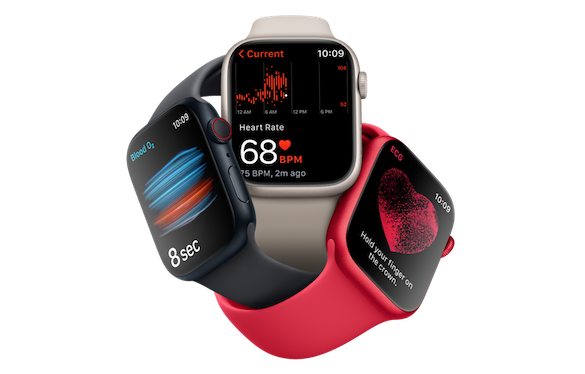IQVIA Vigilance Platform is our secure SaaS environment built to simplify safety and PV processes, while boosting speed, accuracy, and efficiency.
In an era of rapid technological advancement, the global healthcare industry is experiencing a transformative shift, integrating artificial intelligence (AI), machine learning (ML) and natural language processing (NLP) into its operations.
As this wave of innovation surges, it brings along a complex set of challenges and opportunities in the realm of data regulations. The sophistication of global and regional regulatory compliance, for example, in the healthcare supply chain is increasing. AI, ML and NLP technologies have emerged as critical tools to manage this complexity efficiently.
AI-powered regulatory intelligence platforms facilitate the identification and monitoring of regulatory changes from diverse sources. ML-based risk assessment tools help evaluate new regulations, while NLP-driven compliance report generators streamline the reporting process. These technologies collectively aid organizations in complying with specific regulations.
The Regulatory Landscape: A Global PerspectiveAs technology evolves, the need for regulations becomes imperative to ensure the responsible and compliant use of data. Regulatory bodies such as the FDA, MHRA and Health Canada are actively addressing the challenges posed by emerging technologies. Key documents, like the FDA's "Using Artificial Intelligence & Machine Learning in the Development of Drug and Biological Products" and the MHRA's "Predetermined Change Control Plans for Machine Learning-Enabled Medical Devices", signal a heightened focus on regulating AI and ML applications in healthcare.
Europe's General Data Protection Regulation (GDPR) serves as a benchmark for data protection, emphasizing citizens' control over personal data. The impact of GDPR on data flow and storage regulation is reinforcing the need for compliance. In the United States, President Biden's Executive Order to Implement the European Union-U.S. Data Privacy Framework (DPF), also known as Privacy Shield 2.0, signifies a push for a regulatory framework. The new agreement announced July 10, 2023, by the European Commission, regulates data flow between US and EU data and removes US Security Services' ability to mine EU data. It has to be noted that the framework, like all its predecessors, has been challenged in the European Court of Justice (with a ruling still pending as of February 2024, the time of writing).
GDPR's Influence on AI: A Delicate BalanceThe integration of GDPR and AI poses challenges in terms of transparency and data minimization. GDPR mandates transparency in personal data processing, particularly for patient data, which is particularly challenging in AI's data-intensive context. Data minimization requires organizations to collect only necessary personal data, often through techniques like anonymization. Additionally, GDPR includes provisions for access, correction and data portability, which are easier to manage in relational databases than in diverse data lakes. Future revisions of informed consent documents may be necessary. On the other hand, AI is capable of automatically de-identify personally identifiable information (PII) and automatically restrict access to sensitive information.
Managing Regional Healthcare Data Compliance Through AL, ML and NLPHealthcare regulatory compliance has been significantly improved through AI applications, which automate the identification and monitoring of regulatory changes across various sources. This allows organizations to assess critical requirements and predict potential impact points. AI-powered regulatory intelligence platforms analyze vast regulatory datasets, improving compliance with specific requirements like HIPAA in the US and GDPR in the EU. Automated documentation translation enhances centralization. ML-based risk assessment tools identify and assess risks linked to new regulations, while NLP-driven compliance report generators automatically create reports for targeted compliance programs.
AI, ML and NLP also contribute significantly to monitoring and maintaining regional healthcare data compliance. AI and ML-powered data privacy platforms classify sensitive healthcare data, determining protection needs for compliance measures. Internally, AI and NLP monitor data access within healthcare organizations, identifying potential compliance violations. ML-based risk assessment tools evaluate risks associated with data processing activities, while NLP-based data auditing tools efficiently detect and investigate compliance violations.
AI in Pharma: Addressing Industry ChallengesSoaring healthcare costs are driving pharma professionals to develop cost-effective, efficient drugs. Patients seek early, affordable treatments, and diseases are growing more complex, requiring personalized medicine. Global and regional regulations hinder drug market entry, and generics competition forces companies to reduce brand-name drug prices. A lack of skilled workers and the need for tech adoption and upskilling compound these challenges.
AI, ML and NLP can help alleviate these challenges by automating tasks and enhancing efficiency in drug discovery and development. AI-based systems automate screening, predicting drug toxicity and efficacy and help designing drugs. ML-based systems automate patient recruitment, data collection, monitoring and analysis in clinical trials. NLP-based regulatory compliance tools streamline tasks like reviewing clinical trial data and preparing regulatory filings. The commendable amount of standardization and harmonization in the regulatory field is making it a prime target for these new technologies. AI also supports executives in manufacturing, supply chain, documentation creation and marketing.
AI and NLP in Patient Safety and PharmacovigilancePharma companies require interconnected safety, regulatory and quality processes for global precision operations. AI and NLP will play a crucial role in patient safety, automating the detection and reporting of adverse events (AEs) post-market. Automated pharmacovigilance identifies AEs and potential risks in diverse data sources like social channels, patient support programs, CRM systems and audio files. Reporting through web and mobile portals streamlines AE capture and follow-up. Soon, systems will autonomously process individual case safety reports from unstructured data, with humans overseeing quality control, teaching and medical review (so called “human in the loop”).
AI, NLP and automated translation technologies work together to rank safety risks, automatically transcribe audio to text and provide swift access to safety data from various sources including literature, drug labels and regulatory reviews. NLP's real-time identification of related AEs enhances AI's value by enabling instant alerts for critical events.
Generative AI: A Revolution in Regulatory ComplianceGenerative AI, in its early stages, has the potential to revolutionize drug safety by automating case processing, facilitating data access and providing direct answers to safety queries. It can identify hidden trends and patterns, enhance automation and data comprehension and provide unique visualization for non-experts. However, external Generative AI poses risks, including unverified information and misinformation. Mitigating these risks involves deploying industry-specific solutions, curating training data and integrating Generative AI with other tools and human expertise.
IQVIA's team is developing safe and controlled Generative AI tools tailored for life science organizations. Leveraging known datasets, these tools create draft reports, conduct signal detection analysis and identify data trends, maximizing Generative AI's value in life science operations.
Generative AI, ML and NLP are transforming organizations, necessitating a well-planned Change Management Framework. This technological shift, similar to past industrial revolutions, creates new opportunities and renders some jobs obsolete, leading to a strategic approach for successful implementation.
IQVIA’s Three Pillars for Regulatory SuccessIQVIA is fully committed to supporting companies in adapting to regulatory changes by offering regulatory intelligence, consulting and technology solutions to empower life science companies in meeting complex regulatory requirements. Real-time updates, regulatory consulting services and advanced technology solutions form the core pillars of IQVIA's approach to regulatory success.
In ClosingAI, ML and NLP can play critical roles in addressing industry challenges in the growing landscape of healthcare data regulations. As healthcare companies embrace technological breakthroughs, collaboration between regulatory compliance and intelligent technologies becomes increasingly important for fostering innovation while maintaining patient safety and data protection. Finding the right partner to implement, operate and support these technologies is probably the most important decision, pharmaceutical executives have to make these days.
If you would like to learn more about how IQVIA can help you approach complex regulatory requirements send us an email at SafetyPV@iqvia.com

























